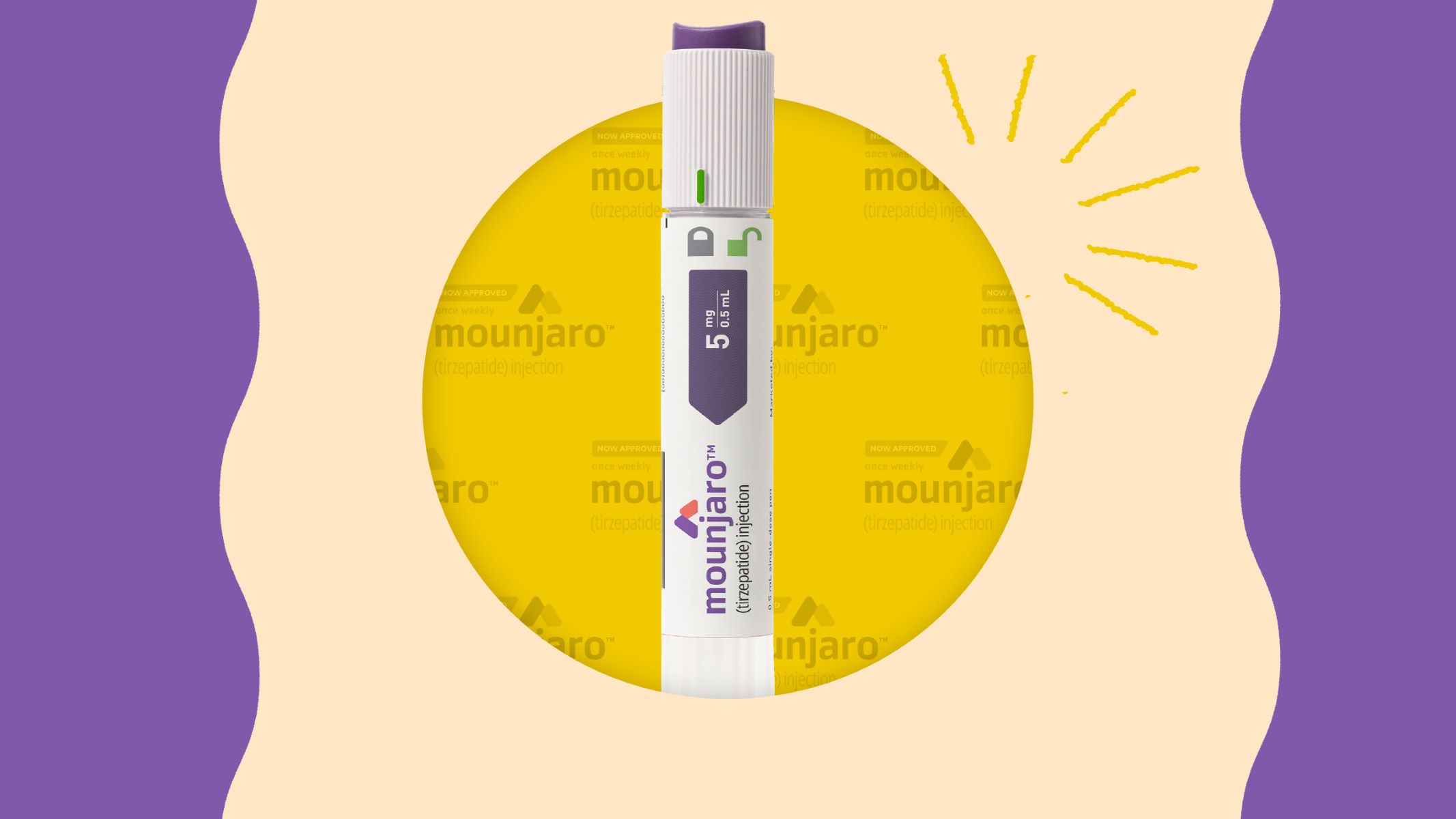

Finance
What Insurance Covers Weight Loss Surgery?
Published: November 14, 2023
Find out what insurance coverage is available for weight loss surgery and how it can help you financially. Explore your options for financing your journey towards a healthier lifestyle.
(Many of the links in this article redirect to a specific reviewed product. Your purchase of these products through affiliate links helps to generate commission for LiveWell, at no extra cost. Learn more)
Table of Contents
- Introduction
- Understanding Weight Loss Surgery
- Types of Weight Loss Surgery
- The Benefits of Weight Loss Surgery
- Insurance Coverage for Weight Loss Surgery
- Pre-Approval and Requirements
- Determining Coverage with your Insurance Provider
- Common Insurance Coverage Criteria
- Medicare and Medicaid Coverage for Weight Loss Surgery
- Other Options for Financing Weight Loss Surgery
- Appeals and Denial of Coverage
- Conclusion
Introduction
Weight loss surgery, also known as bariatric surgery, has become an increasingly popular solution for individuals struggling with obesity. This surgical intervention can provide numerous health benefits and greatly improve quality of life. However, one key factor that may impede individuals from pursuing weight loss surgery is the cost.
Fortunately, many insurance companies recognize the medical necessity of weight loss surgery and offer coverage for these procedures. Understanding the insurance coverage for weight loss surgery can help alleviate financial concerns and make this life-changing procedure more accessible to those in need.
In this article, we will explore the various types of weight loss surgeries, the benefits they offer, and most importantly, insurance coverage options. We will discuss how to navigate the pre-approval process, determine coverage criteria, and explore alternative financing options for those without insurance coverage. Additionally, we will touch on the appeals process in the event of denied coverage.
Whether you’re considering weight loss surgery or researching for a loved one, understanding insurance coverage is vital. By familiarizing yourself with the insurance landscape, you can make informed decisions and ensure that the financial aspect of weight loss surgery does not stand in the way of achieving a healthier future.
Understanding Weight Loss Surgery
Weight loss surgery, also referred to as bariatric surgery, is a surgical procedure designed to facilitate weight loss in individuals with obesity. It involves making changes to the digestive system to restrict food intake and/or reduce the absorption of nutrients.
There are several types of weight loss surgeries, each with its own mechanism of action and level of invasiveness. These include:
- Gastric Bypass: This procedure involves creating a small pouch at the top of the stomach, which is then connected to the small intestine, bypassing a portion of the stomach and the upper part of the small intestine. This reduces the amount of food that can be consumed and limits the absorption of nutrients.
- Gastric Sleeve: In this surgery, a large portion of the stomach is removed, leaving behind a small, banana-shaped pouch. This reduces the capacity of the stomach and limits the production of hunger hormones, resulting in a feeling of fullness with smaller meals.
- Gastric Banding: This procedure involves placing a silicone band around the upper part of the stomach, creating a smaller upper pouch. The band can be adjusted to control the passage of food, allowing for gradual weight loss.
- Biliopancreatic Diversion with Duodenal Switch (BPD/DS): This is a more complex procedure that involves removing a large portion of the stomach and rerouting the small intestine. It restricts food intake and reduces nutrient absorption to a greater extent.
Weight loss surgeries are typically recommended for individuals with a body mass index (BMI) of 40 or higher, or those with a BMI of 35 or higher with obesity-related health conditions such as type 2 diabetes or sleep apnea.
The decision to undergo weight loss surgery is not to be taken lightly. It requires careful consideration, counseling, and evaluation of potential risks and benefits. It is important to consult with a qualified bariatric surgeon who can assess your individual circumstances and determine the most suitable procedure for you.
Types of Weight Loss Surgery
There are several types of weight loss surgeries, also known as bariatric surgeries, each with its unique approach to promote weight loss. Let’s explore the most common types:
- Gastric Bypass: This surgery involves creating a smaller stomach pouch by stapling a portion of the stomach to reduce its capacity. The small pouch is then connected directly to the small intestine, bypassing a large part of the stomach and the upper portion of the small intestine. The reduced stomach size and altered digestive pathway result in decreased food intake and decreased absorption of nutrients.
- Gastric Sleeve: Also known as sleeve gastrectomy, this surgery involves removing a significant portion of the stomach, leaving behind a sleeve-shaped pouch. This reduces the stomach’s capacity to hold food and restricts the production of hunger hormones. As a result, individuals experience a feeling of fullness with smaller meals, leading to weight loss.
- Gastric Banding: In this procedure, an inflatable silicone band is placed around the upper part of the stomach, creating a smaller pouch. The band can be adjusted to control the size of the opening between the pouch and the rest of the stomach. This adjustable band restricts the amount of food the stomach can hold, promoting weight loss.
- Biliopancreatic Diversion with Duodenal Switch (BPD/DS): This surgery involves two steps. First, a portion of the stomach is removed to create a smaller stomach pouch. Then, the surgeon redirects a section of the small intestine to connect to the new stomach pouch, bypassing a significant portion of the small intestine. This procedure reduces both the amount of food that can be consumed and the absorption of nutrients.
Choosing the most appropriate weight loss surgery depends on various factors, including the individual’s overall health, lifestyle, and personal preferences. It is crucial to consult with a qualified bariatric surgeon who can evaluate your specific situation and recommend the most suitable procedure.
While these surgeries have proven to be highly effective in achieving significant weight loss, they are not a quick fix or a standalone solution. They require commitment to long-term lifestyle changes, such as adopting a healthy diet, incorporating regular exercise, and attending follow-up appointments to ensure proper monitoring and support.
The Benefits of Weight Loss Surgery
Weight loss surgery offers various physical and psychological benefits for individuals struggling with obesity. Let’s explore some of the key benefits:
- Significant Weight Loss: Weight loss surgery can lead to significant and sustained weight loss. Studies have shown that individuals who undergo these procedures can achieve a weight loss of 50% or more of their excess body weight.
- Improvement in Obesity-Related Health Conditions: Weight loss surgery can help improve or resolve many obesity-related health conditions, including type 2 diabetes, high blood pressure, sleep apnea, and joint pain. It can also reduce the risk of developing future health problems associated with obesity.
- Enhanced Quality of Life: Losing excess weight can lead to a significant improvement in overall quality of life. Physical activities become easier, mobility improves, and individuals often experience increased self-esteem and body confidence.
- Reduced Risk of Cardiovascular Disease: Weight loss surgery can help reduce the risk of heart disease and stroke associated with obesity. With weight loss, blood pressure and cholesterol levels tend to decrease, leading to a healthier cardiovascular system.
- Improved Mental Health: Obesity is often linked to mental health conditions such as depression and anxiety. Weight loss surgery can help alleviate these symptoms and improve mental well-being, providing individuals with a fresh start and renewed self-confidence.
- Increased Lifespan: Studies have indicated that weight loss surgery can lead to an increase in life expectancy for individuals with obesity. By reducing the risk of obesity-related diseases and improving overall health, weight loss surgery can potentially add years to one’s life.
It is important to note that weight loss surgery is not a magic solution and requires commitment to long-term lifestyle modifications. Adhering to a healthy diet, engaging in regular physical activity, and attending follow-up appointments are crucial for maintaining weight loss and maximizing the benefits of the surgery.
If you are considering weight loss surgery, it is essential to have a thorough discussion with a qualified healthcare professional to assess your eligibility, understand the potential risks and benefits, and determine the most suitable approach for your specific circumstances.
Insurance Coverage for Weight Loss Surgery
Insurance coverage for weight loss surgery can vary widely depending on the insurance provider and policy. While some insurance companies consider weight loss surgery a medically necessary procedure and provide coverage, others may have stricter criteria or exclude coverage altogether.
The first step in determining your insurance coverage for weight loss surgery is to review your policy documents or contact your insurance provider directly. Look for any information related to bariatric surgery coverage, including specific criteria, documentation requirements, and any pre-approval processes.
It is important to note that insurance companies typically require documentation supporting the medical necessity of weight loss surgery. This may include evidence of failed attempts at non-surgical weight loss methods, documentation of obesity-related health conditions, and a comprehensive evaluation by a qualified bariatric surgeon.
Some common criteria that insurance companies may consider for coverage include:
- Body Mass Index (BMI) requirement: Insurance providers often have a minimum BMI threshold that individuals must meet to be considered eligible for coverage. This is typically a BMI of 40 or higher, or a BMI of 35 or higher with certain obesity-related health conditions.
- Evidence of failed non-surgical weight loss attempts: Insurance companies may require documentation of participation in supervised weight loss programs, dietary counseling, and other non-surgical weight loss interventions before approving coverage for surgery.
- Health condition requirements: Some insurance providers may require the presence of specific obesity-related health conditions, such as diabetes or sleep apnea, to qualify for coverage.
- Age and medical history: Insurance policies may have age restrictions or specific medical history requirements for coverage eligibility.
- Surgeon and facility credentials: Insurance providers may require that the surgery be performed by a qualified bariatric surgeon and in an accredited facility.
It is important to carefully review your insurance policy and consult with your insurance provider to understand the specific coverage criteria and any potential out-of-pocket expenses. In some cases, your insurer may cover a portion of the surgery costs, while you may be responsible for deductibles, copayments, or other expenses.
If you do not have insurance coverage for weight loss surgery, there are alternative financing options available, such as medical loans or payment plans offered by bariatric surgery centers. Additionally, some employers may offer coverage through employee health insurance plans, so it’s worth exploring this possibility as well.
Remember, each insurance provider and policy may have different requirements, so it is crucial to do your due diligence and thoroughly understand your coverage options before proceeding with weight loss surgery.
Pre-Approval and Requirements
Before undergoing weight loss surgery, it is essential to go through the pre-approval process with your insurance provider. This process ensures that your insurance coverage and benefits will apply to the procedure. Here are some key steps and requirements to keep in mind:
- Confirm Your Coverage: Review your insurance policy documents or contact your insurance provider to determine if weight loss surgery is a covered benefit. Understand the specific criteria, limitations, and documentation requirements for coverage.
- Obtain Referrals and Evaluations: Your insurance company may require you to obtain referrals from your primary care physician or other healthcare providers. They may also require comprehensive evaluations by a qualified bariatric surgeon to assess your candidacy for weight loss surgery.
- Gather Medical Documentation: Your insurer will likely require documentation that supports the medical necessity of weight loss surgery. This may include records of previous weight loss attempts, documentation of obesity-related health conditions, and any relevant medical history.
- Meet BMI Requirements: Insurance providers often have minimum BMI requirements to qualify for weight loss surgery coverage. Make sure you meet these requirements and provide documented evidence of your BMI.
- Participate in Pre-Surgery Programs: Some insurance companies may require participation in supervised diet and exercise programs or counseling sessions before granting approval for weight loss surgery. Compliance with these requirements is crucial to demonstrate your commitment to lifestyle changes.
- Choose an In-Network Provider: To maximize your insurance coverage, it is advisable to select a bariatric surgeon who is in-network with your insurance provider. This ensures that you receive the highest level of coverage and minimize potential out-of-pocket costs.
It is important to diligently follow all pre-approval requirements set by your insurance provider. Failing to meet these requirements may result in denial of coverage.
Keep in mind that the pre-approval process can be time-consuming, requiring a thorough evaluation of your medical history, consultations with healthcare providers, and submission of supporting documentation. It is advisable to start the process well in advance to allow for ample time to complete all necessary steps.
Remember, each insurance provider may have specific pre-approval requirements. It is crucial to carefully review your policy documents and contact your insurance provider directly to understand the precise process and requirements for your coverage.
By following the pre-approval process and meeting all necessary requirements, you can increase the likelihood of receiving insurance coverage for your weight loss surgery and ensure a smoother financial journey throughout the procedure.
Determining Coverage with your Insurance Provider
When it comes to determining coverage for weight loss surgery, it is crucial to have a clear understanding of your insurance policy and communicate directly with your insurance provider. Here are some steps to help you navigate the process:
- Review Your Policy: Carefully read through your insurance policy documents to identify any mentions of weight loss surgery coverage. Look for specific criteria, limitations, and exclusions related to bariatric procedures. Take note of any pre-approval requirements or documentation needed for coverage.
- Contact Your Insurance Provider: Reach out to your insurance provider directly either by phone or through their online portal to inquire about coverage for weight loss surgery. Ask specific questions about their criteria for approval, any required documentation, and the level of coverage you can expect.
- Request a Coverage Determination Letter: If your insurance provider confirms that weight loss surgery is a covered benefit, request a coverage determination letter. This official document will detail the services covered, any co-pays or deductibles, and the specific conditions for coverage.
- Clarify Out-of-Pocket Costs: Understand the financial implications of weight loss surgery by discussing any out-of-pocket costs with your insurance provider. Inquire about deductibles, co-pays, and any other expenses you may be responsible for. It is crucial to have a clear understanding of your financial obligations before proceeding with the surgery.
- Get Authorization for Surgery: Once you have gathered all the necessary information and documentation, work with your bariatric surgeon’s office to obtain prior authorization for the surgery from your insurance provider. This step ensures that your insurance coverage is officially confirmed before the procedure takes place.
Throughout this process, it is important to document all interactions with your insurance provider, including dates, times, and the names of the representatives you speak with. This will serve as a record of the information provided to you and help in case of any disputes or discrepancies later on.
Remember that insurance coverage for weight loss surgery can vary depending on the specific policy and insurance provider. It is crucial to communicate openly and transparently with your insurance company to ensure that you have a clear understanding of your coverage and any associated costs.
If you encounter any challenges or denials, you can also consider seeking assistance from a patient advocate or healthcare attorney who specializes in insurance coverage issues. They can provide guidance and help you navigate the appeals process, if necessary.
By taking a proactive approach and staying informed about your coverage options, you can make well-informed decisions and financially plan for your weight loss surgery.
Common Insurance Coverage Criteria
Insurance coverage criteria for weight loss surgery can vary among different insurance providers and policies. However, there are some common criteria that many insurers consider when evaluating coverage for these procedures. Here are a few criteria that are often taken into account:
- Body Mass Index (BMI): Insurance companies commonly require a minimum BMI threshold to qualify for weight loss surgery coverage. This is usually a BMI of 40 or higher, or a BMI of 35 or higher with obesity-related health conditions such as diabetes or sleep apnea.
- Documented Failed Attempts at Non-Surgical Weight Loss: Insurance providers typically require documentation showing that you have made previous efforts to lose weight through supervised diet and exercise programs, behavioral counseling, or medically supervised weight loss attempts that have not been successful.
- Medical Necessity: Insurance companies often require evidence that weight loss surgery is medically necessary. This may include documentation of obesity-related health conditions and their impact on your overall health and quality of life.
- Age and Health History: Some insurance policies may have specific age restrictions or medical history requirements for weight loss surgery coverage. Make sure to review your policy to understand any such criteria.
- Surgeon and Facility Credentials: Insurance providers may require that weight loss surgery be performed by a qualified bariatric surgeon who is in-network with the insurance company. The facility where the surgery is performed may also need to meet accreditation standards.
- Pre-Approval Documentation: Insurance companies often have specific documentation requirements to support the request for weight loss surgery. This may include medical records, physician evaluations, and a comprehensive assessment of your physical and mental health.
- Compliance with Pre-Surgery Requirements: Some insurance policies require individuals to participate in pre-surgery programs, such as supervised diet and exercise plans or counseling sessions. Compliance with these requirements is crucial to demonstrate your commitment to lifestyle changes.
It is important to note that these criteria can vary between insurance providers, and what may be covered by one insurance company may not be covered by another. It is essential to carefully review your insurance policy and consult directly with your insurance provider to understand their specific weight loss surgery coverage criteria.
Meeting the insurance coverage criteria is essential to increase the likelihood of approval and minimize potential financial burden. Consulting with a bariatric surgeon who has experience navigating insurance processes can also be beneficial, as they can help provide guidance and assist with the necessary documentation.
Remember to always communicate openly with your insurance provider and keep thorough records of all interactions and documentation submitted. If your initial request for coverage is denied, you may have the option to go through an appeal process to have the decision reconsidered.
By understanding the common insurance coverage criteria and actively working with your insurance provider, you can better navigate the process and increase your chances of obtaining coverage for weight loss surgery.
Medicare and Medicaid Coverage for Weight Loss Surgery
Medicare and Medicaid, two government-funded healthcare programs, provide coverage for weight loss surgery under specific circumstances. Here’s an overview of the coverage criteria for each program:
Medicare:
Medicare is a federal health insurance program primarily for individuals over the age of 65, but also covers certain younger individuals with disabilities or end-stage renal disease. Medicare coverage for weight loss surgery, also known as bariatric surgery, follows a set of criteria:
- Body Mass Index (BMI) Requirement: Medicare requires individuals to have a BMI of 35 or higher, along with at least one obesity-related health condition, such as diabetes or high blood pressure.
- Documentation of Failed Non-Surgical Interventions: Medicare requires documentation of previous attempts at non-surgical weight loss methods, such as diet and exercise programs, weight management counseling, or medication-based interventions.
- Medical Necessity: Medicare considers weight loss surgery medically necessary when it is expected to improve or prevent obesity-related health conditions, and when the benefits outweigh the risks.
- Accredited Facility and Bariatric Surgeon: Medicare requires that weight loss surgery be performed at an accredited facility and by a bariatric surgeon who is credentialed according to Medicare standards.
It is important to note that Medicare coverage for weight loss surgery may be limited to specific procedures, such as gastric bypass or sleeve gastrectomy, and there may be certain limitations on the number of covered surgeries per lifetime.
Medicaid:
Medicaid is a joint federal and state program that provides health coverage to individuals and families with low income. Medicaid coverage for weight loss surgery varies from state to state, as each state has its own guidelines and criteria. However, there are some common factors considered for coverage:
- BMI Requirement: Medicaid typically requires individuals to have a BMI of 35 or higher, although some states may consider individuals with a BMI of 30 or higher.
- Documentation of Failed Non-Surgical Interventions: Similar to Medicare, Medicaid may require documentation of previous attempts at non-surgical weight loss measures.
- Health Condition Requirements: Medicaid coverage for weight loss surgery may require the presence of specific obesity-related health conditions, such as diabetes or hypertension.
- Accredited Facility and Bariatric Surgeon: Medicaid usually requires weight loss surgeries to be performed at accredited facilities by bariatric surgeons who meet certain qualifications and credentials.
It is important to consult with your state Medicaid agency to understand the specific coverage criteria and limitations in your state. Keep in mind that Medicaid coverage for weight loss surgery may vary, and there may also be specific documentation and pre-approval processes required.
If you have Medicare or Medicaid, it is crucial to work closely with your healthcare provider and insurance administrator to understand the coverage criteria, gather the necessary documentation, and navigate the approval process.
Remember to carefully review your insurance policy or contact your Medicare or Medicaid representative to obtain detailed information regarding weight loss surgery coverage.
Other Options for Financing Weight Loss Surgery
While insurance coverage for weight loss surgery can greatly alleviate the financial burden, not everyone has access to comprehensive coverage or meets the criteria set by their insurance provider. If insurance coverage is not available or insufficient, there are still alternative options to help finance weight loss surgery. Here are some options to consider:
- Private Financing: Many bariatric surgery centers offer financing options directly to patients. These may include medical loans, payment plans, or other financing arrangements. It is important to carefully review the terms and interest rates associated with these options to ensure they are within your budget.
- Health Savings Account (HSA) or Flexible Spending Account (FSA): If you have an HSA or FSA through your employer, these accounts can be a useful tool in financing weight loss surgery. Contributions to these accounts are made on a pre-tax basis, which can help reduce the overall cost burden. Check with your plan administrator to confirm if weight loss surgery is an eligible expense.
- Personal Savings or Loans: If you have personal savings or access to low-interest loans, you may consider using these resources to finance your weight loss surgery. Be sure to carefully assess your financial situation and consider the impact it may have on your long-term financial goals.
- Medical Tourism: Some individuals may choose to travel to other countries where the cost of weight loss surgery is significantly lower than in their home country. Medical tourism can offer more affordable options, but it is essential to thoroughly research the facility, surgeon qualifications, and post-operative care before considering this option.
- Employer Assistance: Depending on your employer, there may be employer-sponsored programs or benefits that can help financially support weight loss surgery. It is worth exploring these possibilities and discussing them with your employer or human resources department.
Regardless of the financing option you choose, it is important to consider the long-term costs associated with weight loss surgery, including post-operative care, dietary and lifestyle changes, and potential complications or follow-up procedures. Adequate financial planning and budgeting can help ensure a successful and sustainable weight loss journey.
Remember to consult with a bariatric surgeon and any financial advisors to evaluate your options and select the most suitable financing method for your personal circumstances. Discussing your financial concerns openly and honestly with the surgical team can help them guide you toward the most appropriate resources.
Finally, don’t forget to explore any potential assistance programs or grants that may be available for weight loss surgery. Some organizations and foundations offer financial aid specifically for individuals seeking bariatric surgery.
By exploring these alternative financing options and engaging in open communication with healthcare and financial professionals, you can find a solution that makes weight loss surgery more financially attainable and sets you on a path towards improved health and well-being.
Appeals and Denial of Coverage
Despite meeting the necessary criteria and providing all required documentation, there is a possibility that your insurance provider may deny coverage for weight loss surgery. If this happens, it doesn’t necessarily mean the end of the road. You may have the option to appeal the decision. Here’s what you need to know about the appeals process:
Understanding Denial Reasons:
When you receive a denial of coverage, carefully review the explanation provided by your insurance company. Common reasons for denial include failure to meet specific coverage criteria, lack of medical necessity, or inadequate documentation. Understanding the reason for denial will help you prepare a strong appeal.
Review Your Insurance Policy and Documents:
Thoroughly review your insurance policy, coverage determination letter, and any other documents related to your coverage. Make sure you understand the specific criteria and requirements for weight loss surgery. This will help you formulate a solid argument in your appeal.
Collect Additional Information and Documentation:
If your initial documentation was insufficient or did not meet the criteria, gather any additional information that supports the medical necessity of weight loss surgery. This may include letters from healthcare providers, updated medical records, or testimonials from specialists. Strengthening your case with robust evidence can increase the likelihood of a successful appeal.
Follow the Appeals Process:
Each insurance provider has its own appeals process, so carefully review the instructions provided by your insurance company. Typically, the process involves submitting a written appeal within a specified timeframe and providing any supplemental information to support your claim. Consider consulting with your healthcare provider or a patient advocate for guidance in navigating the appeals process.
Seek Professional Assistance, if Necessary:
If you encounter challenges or are unsure how to proceed with your appeal, consider seeking assistance from a healthcare attorney or patient advocate who specializes in insurance claim denials. They can help review your case, provide guidance, and advocate on your behalf throughout the appeals process.
Be Persistent and Diligent:
The appeals process may require patience and persistence. Keep records of all correspondence with your insurance company, including dates, times, and the names of representatives you speak with. Follow up regularly on the status of your appeal and maintain regular communication to demonstrate your commitment to resolving the issue.
Remember, every insurance company and policy may have different appeal procedures and deadlines. It is crucial to carefully review the denial notice, adhere to the instructions provided, and submit your appeal within the designated timeframe.
While there is no guarantee of a successful appeal, taking the time to understand the denial reasons, gather additional supporting documentation, and follow the appeals process can increase your chances of overturning the denial and obtaining coverage for weight loss surgery.
Stay persistent, remain diligent throughout the process, and consider seeking assistance to help navigate the complexities of the appeals process.
Conclusion
Weight loss surgery can be a life-changing solution for individuals struggling with obesity. While insurance coverage for weight loss surgery varies, understanding the coverage criteria and navigating the process can help minimize financial barriers. By reviewing your insurance policy, communicating with your insurance provider, and meeting the required documentation and pre-approval requirements, you can increase the likelihood of obtaining coverage.
If insurance coverage is not available or insufficient, there are alternative financing options to consider, such as private financing, utilizing health savings or flexible spending accounts, and exploring employer assistance programs. It is important to carefully assess these alternatives and choose the option that best fits your financial situation.
In the event of a denial of coverage, the appeals process provides an opportunity to fight for coverage. Thoroughly understanding the reason for denial, collecting additional information, and following the appeals process diligently can increase the chances of a successful appeal.
Overall, weight loss surgery is a significant decision that requires careful consideration. It is crucial to consult with a qualified bariatric surgeon, engage in thorough discussions with your healthcare providers, and assess the potential risks and benefits before proceeding with the surgery.
Remember, weight loss surgery is not only about the physical transformation but also about adopting long-term lifestyle changes to ensure sustained weight loss and improved overall health. This journey requires commitment, perseverance, and the support of healthcare professionals and loved ones.
Whether you obtain insurance coverage or explore alternative financing options, taking the necessary steps to achieve a healthier future is a worthy investment. By pursuing weight loss surgery, you can improve your quality of life, reduce the risk of obesity-related health conditions, and embark on a new chapter of health and well-being.














